Read this if you want to go deep on this theory about vices, survival rewards, and why knowledge about them never translates to permanent behavioral change.
Have you ever stopped to wonder why savoring a delicious, hearty meal feels so good? Or why reaching a mountain peak after a long hike feels so gratifying? And what’s behind the rush you get when you meet someone popular and attractive?
These pleasurable feelings occur because specific chemicals are released in your brain. But these chemicals aren't just lying around—they must be synthesized, which requires energy and raw ingredients.
In other words, feeling good ain't free. So why do our brains even bother?
Well, it's because of the "Disconnect Issue".
For many of the actions we need for survival, there is a time gap between the initial action—putting in work to acquire energy-rich food for example—and the benefits—having a store of energy for the future.
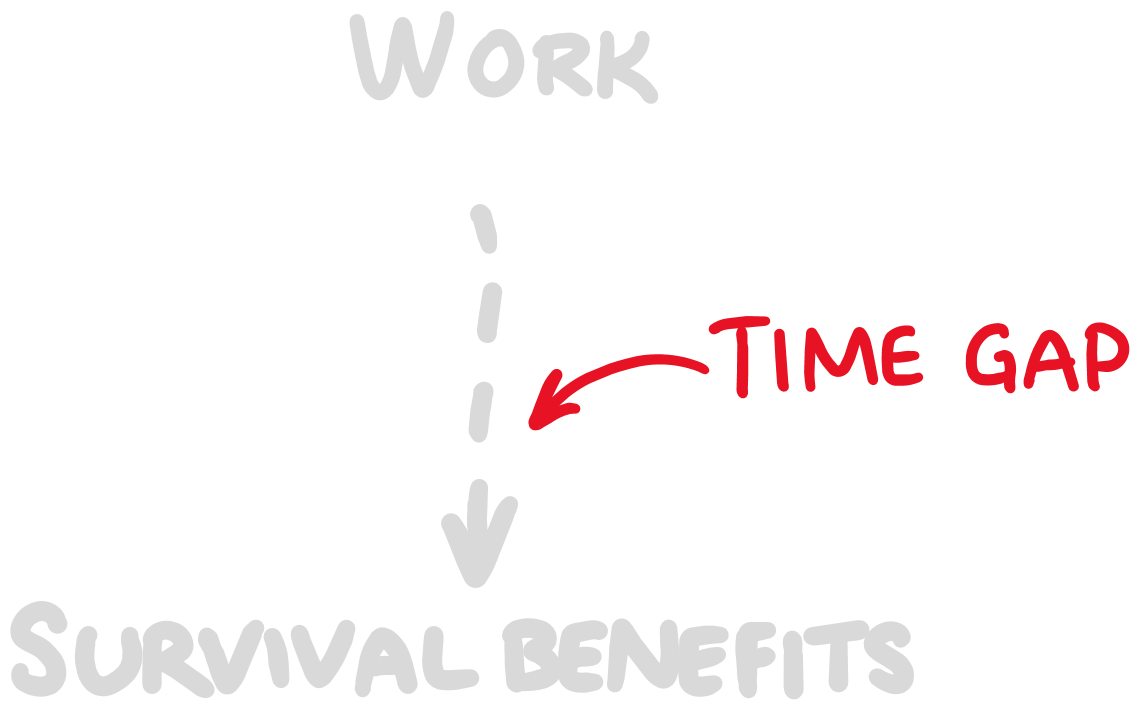
But all animals, humans very much included, lack the foresight to be motivated by distant survival benefits. So, evolution granted us a simple reward-based system to deal with that disconnect.
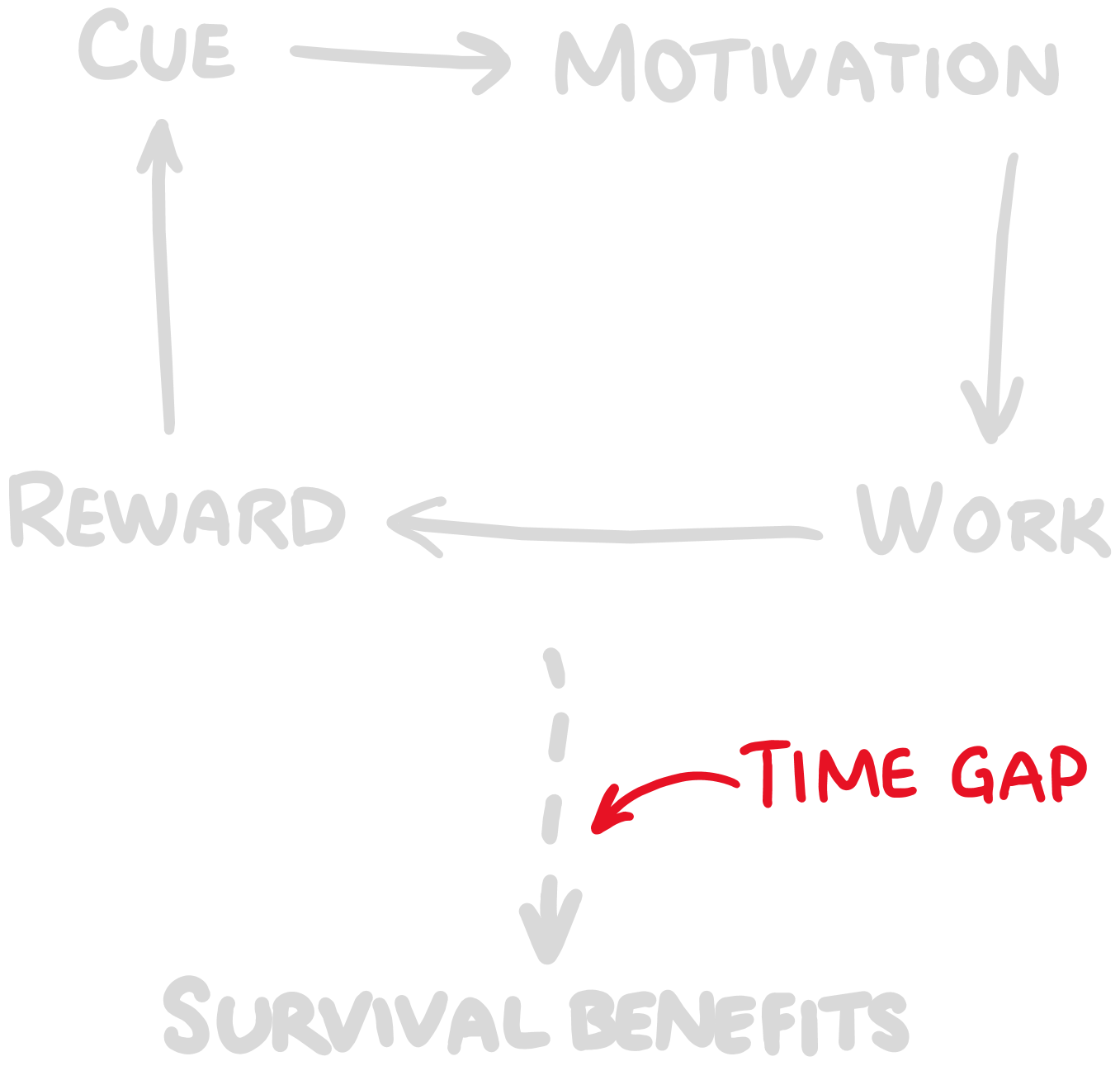
We are motivated to take action by the promise of rewards—not by notions of distant survival benefits.
It's a straightforward mechanism, yet it's served us and most other species on Earth remarkably well.
My favorite example of this is procreation. We are driven to make and care for babies because every step of the way, from flirting/having sex to the experience of caring for a newborn, is dotted with pleasure and gratifying feelings (the latter via oxytocin).
Meanwhile, there are no obvious and immediate benefits given to the parents. On the contrary, babies are not much more than pooping liabilities. The eventual, time-gapped benefits, rather, are given to our species as a whole. More babies, who are well taken care of by reward-driven parents, are great for the survival and dominance of our species. It doesn't get more disconnected than that.
The cost of rewards
We all love rewards. Feeling good… feels good.
In contrast, wanting a reward—experiencing a craving or an urgent desire—can turn into pure agony.
But here’s the thing: rewards are very hard to get. They are costly in terms of time, effort, and risks.
The pleasure of eating meat requires hunting in the wild, often for days, while exposed to harsh elements and other predators.
The pleasure of sex requires the risk of being outcast from your group should you advance on the wrong person.
The pleasure of achieving difficult goals requires actually putting in the time and effort to achieve them.
Ultimately, if you want the pleasure of a reward, you have to put in the work. There’s no way around the energy costs and risks. There's always a fair and balanced exchange.
At least, that’s how it used to be.
But no longer. Now we have vices.
Shortcuts to rewards
Vices allow us to feel all sorts of rewards, without needing to do much of anything in terms of time, energy costs, or survival risks.
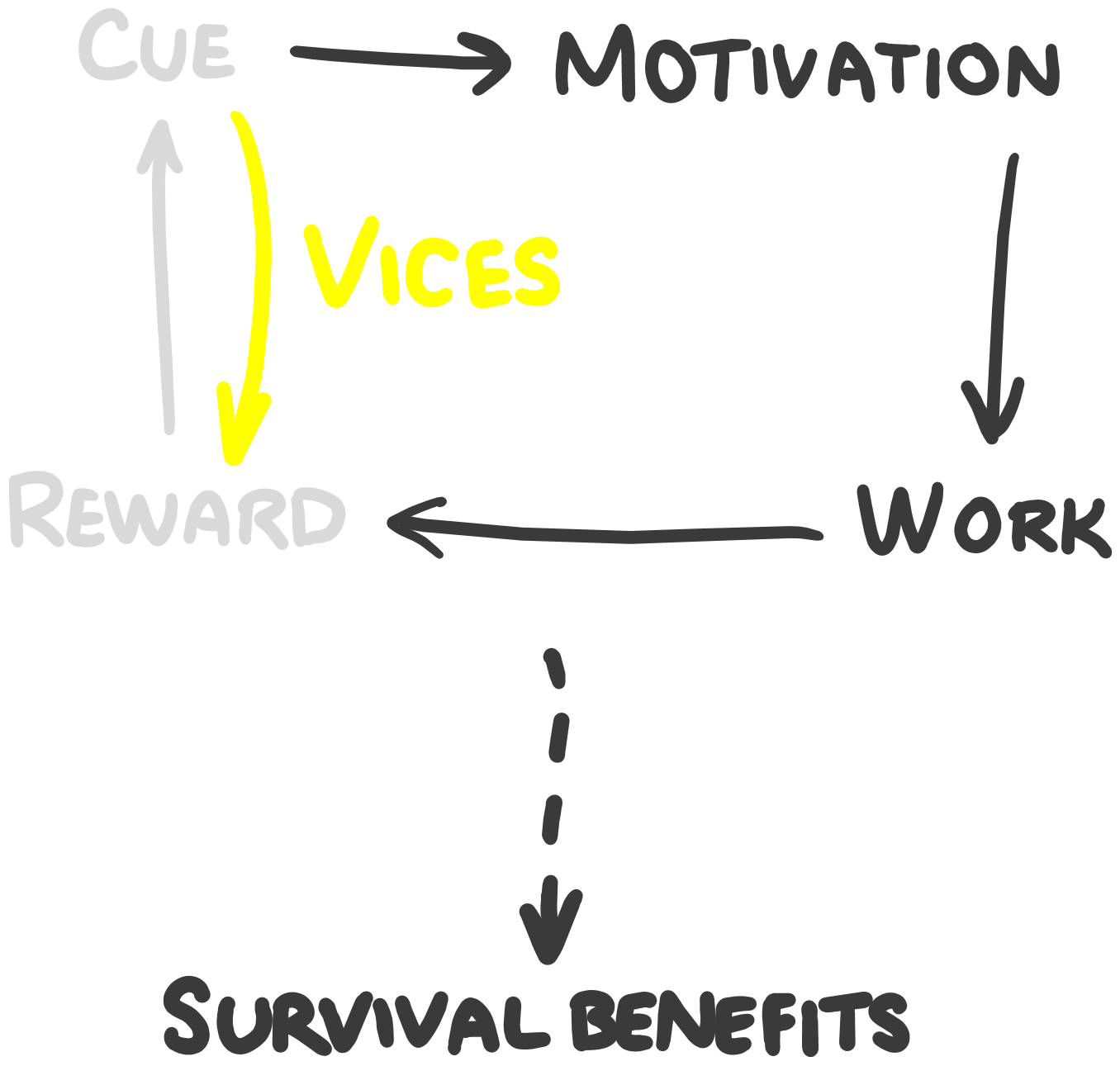
You no longer have to put in the effort to make friends, organize plans, go out, converse… You can sit on a couch, load up a sitcom on your TV, and vicariously experience the pleasure of gossip, dramatic social interactions, and storytelling.
You no longer have to scavenge under a hot sun at the mercy of bees, mosquitoes, and thorny vines, all for a small basket of sour fruit. You can just buy a giant bag of candy at your local Wal-Mart—no peel, seeds, fiber, or bugs—and just enjoy.
At this point in our modern era—and for the first time in our species’ entire existence—every single one of the rewards we can possibly feel has a vice-based equivalent.
The tech, media, and food industries have left no stone unturned.
For sex, there’s porn.
You watch a screen, which tricks your brain into thinking you’re in a room with a line-up of hyper-attractive people. You do your thing and your brain rewards you with much of the pleasure you’d get from having real sex.
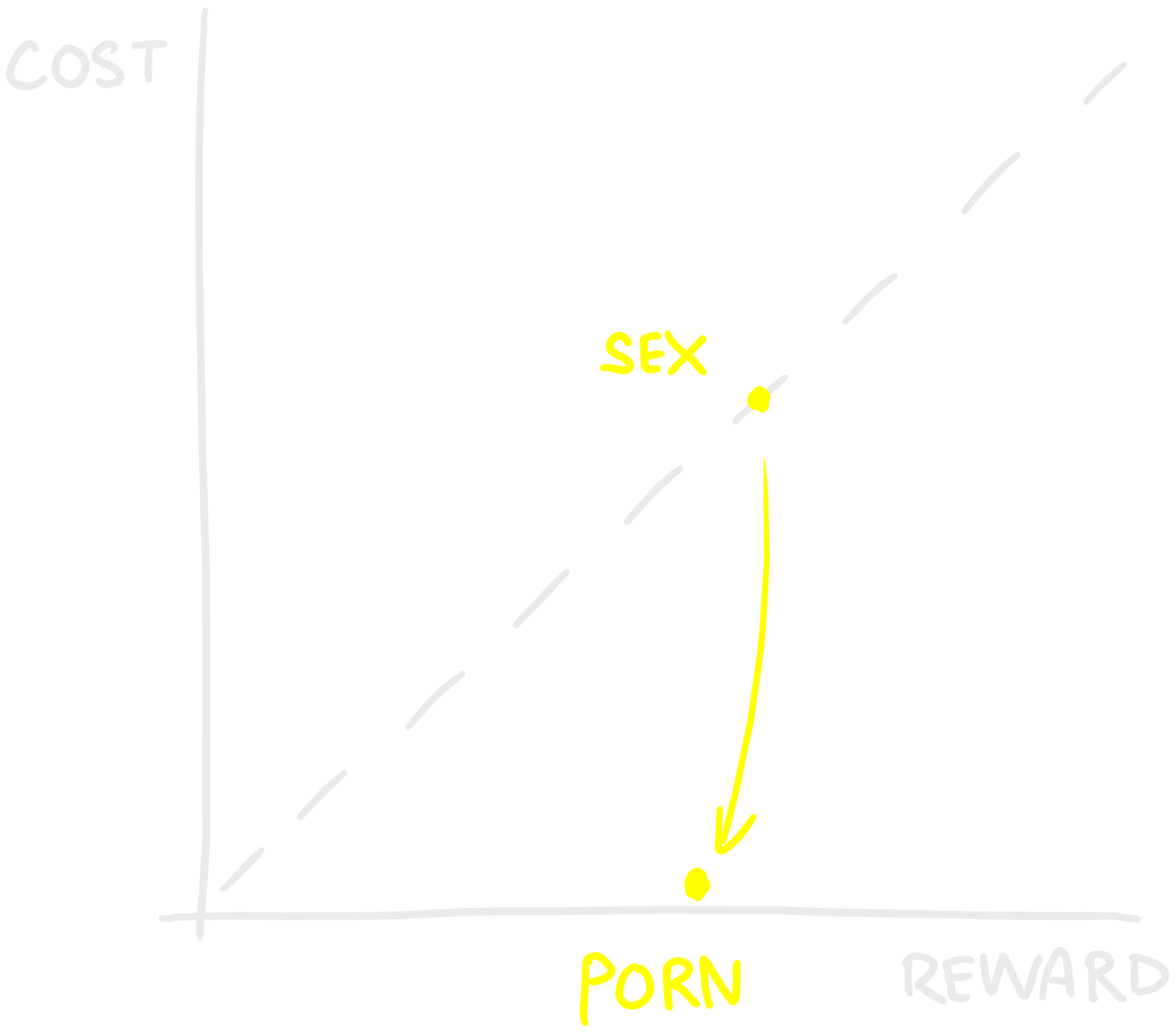
Porn gets you the pleasure of real sex… without the cost of the real thing.
For status, there’s social media.
In the real world, social status is often secured by acquiring skills, amassing wealth, forging strong social ties, and achieving various forms of success and recognition. None of that comes quickly or without risk. You can’t just row a kayak up to a famous rapper’s yacht and expect to be hoisted up and invited to join the party while being offered a glass of champagne.
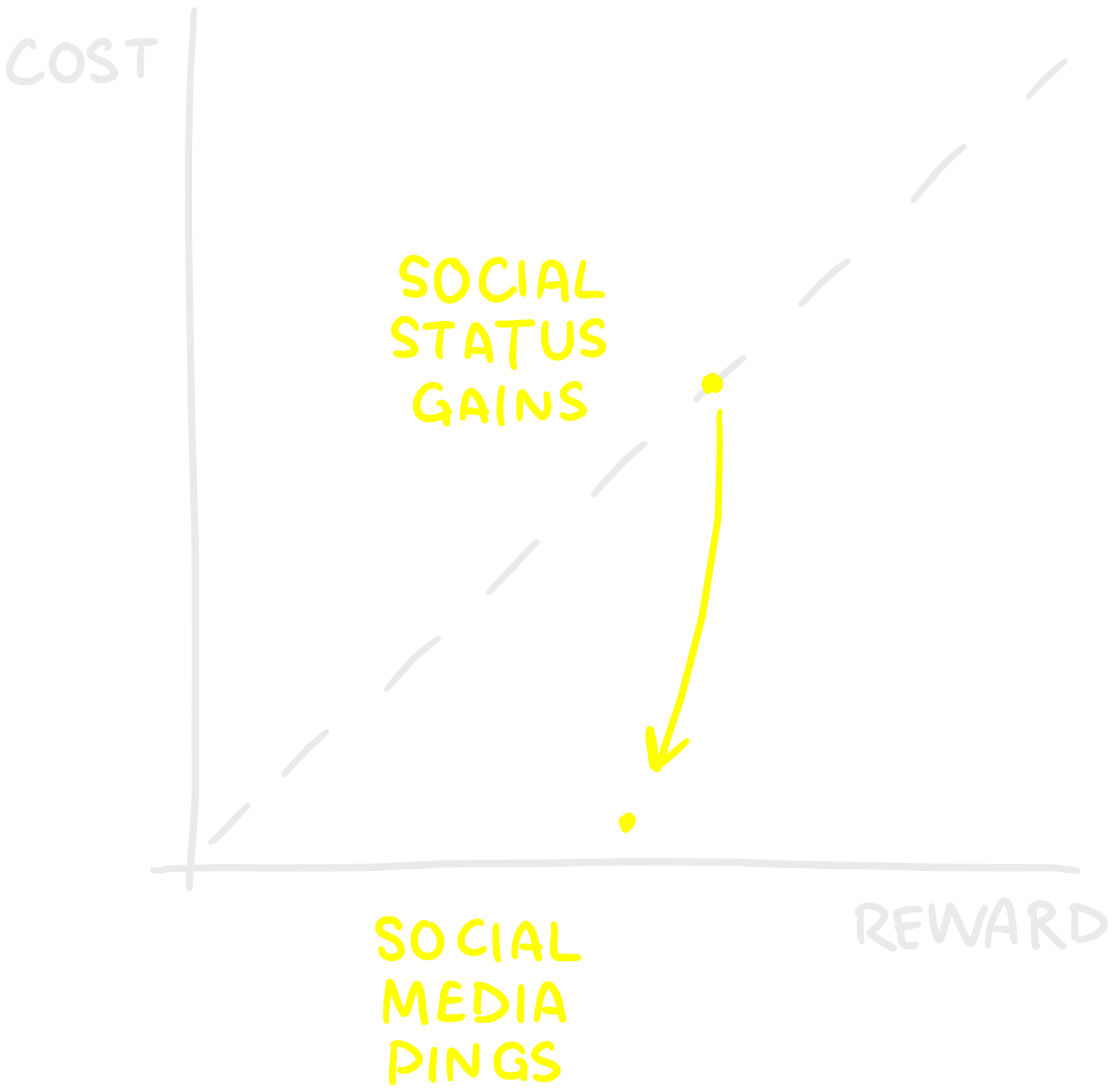
But now you can thumb through videos of celebrities and influencers as they showcase their high-status living. Like with porn, your subconscious can’t distinguish between these images on a screen and the real world. It thinks you’re there with them—that you’re a part of their entourage. Your brain doesn’t know you found a shortcut. You get the steady, gratifying sensations of status without putting in any work.
Here are some more examples:
- For the thrill of traveling, exploring new places, and completing quests, you need to leave the comfort of your house and risk the threats and obstacles of the unknown. The vice shortcut is adventure and role-playing video games.
- For the gratification of winning a real-world competition, you invest in training and take all the risks of competing. The vice shortcut is watching sports.
- To acquire knowledge about threats and opportunities, you either explore the dangerous world or trade valuable resources for such information. The vice shortcut is a Twitter (“X”) or Reddit feed, combined with the sensationalist 24-hour news cycle.
- Finally, for the satisfaction of contributing to society, you engage in good deeds, volunteering, or activism. The vice shortcut is online virtue-signaling and "slacktivism."
Once again, at this point in modern society, every single one of the rewards we can possibly feel has a vice-based equivalent. We now have endless shortcuts to pleasure.
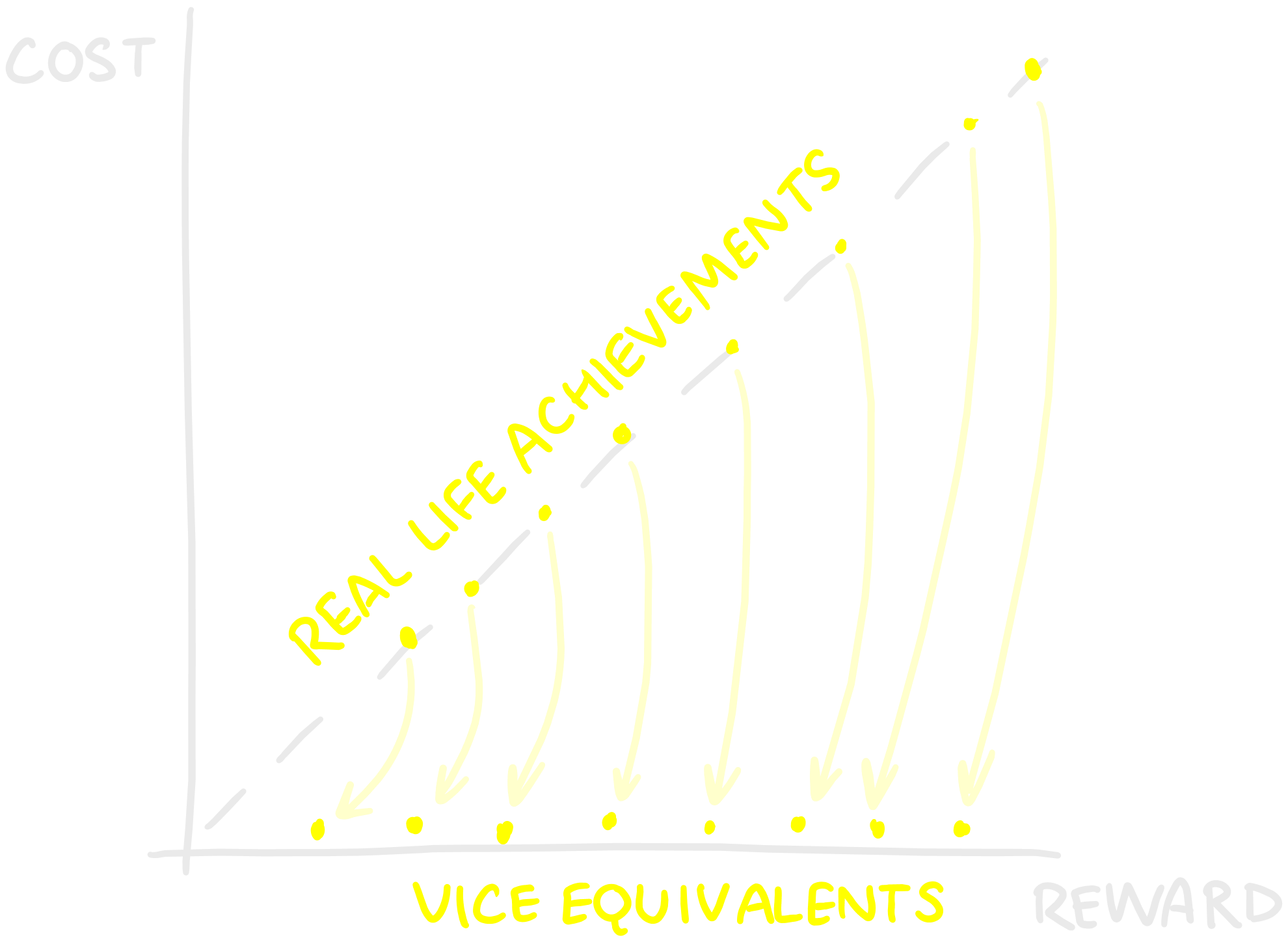
For every rewarding experience, there's a vice equivalent—a shortcut to its reward.
Why you never learn from mistakes
As procrastinators, we've all made—and broken—countless promises. It's like we always end up making bad choices, despite knowing they'll lead to terrible consequences, and a ton of wasted time.
But why though? Why don't we learn from our mistakes? Why are we going to repeat the same old set of actions? Why is our next rationalized indulgence sure as clockwork?
It's because of that time gap. That time gap between our actions and their eventual effects.

Think about it.
Think about the “shortcutting” nature of your vices. Think about how it's all artificial, vicarious, and completely void of any real substance.
These behaviors don't actually lead to any benefits. On the contrary, over time, they lead to a plethora of detriments—to addiction and obesity; to anxiety disorders and depression; to the negative effects of chronic procrastination and underachievement.
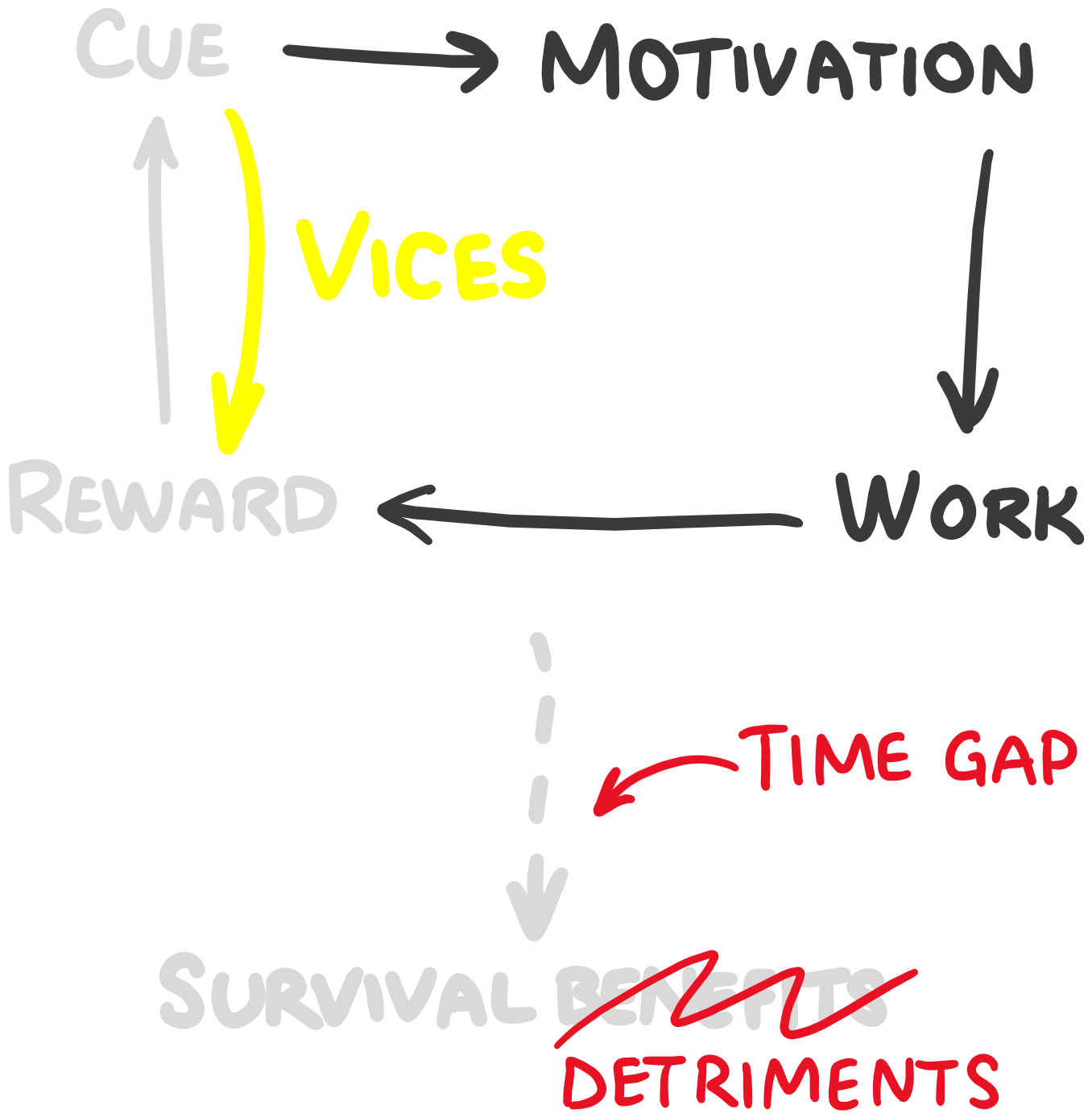
But since that wide temporal disconnect between these actions and their eventual effects exists, our vices are never A) un-associated with survival benefits, and B) re-associated to these survival detriments.
To our primitive brains, our vices remain not just benign and harmless, but essential purveyors of survival-affirming rewards. As such, we're never made to feel a visceral need to avoid them. On the contrary: the worst our lives get, the more we crave the escape and relief of vices.
And that’s a really big problem.
